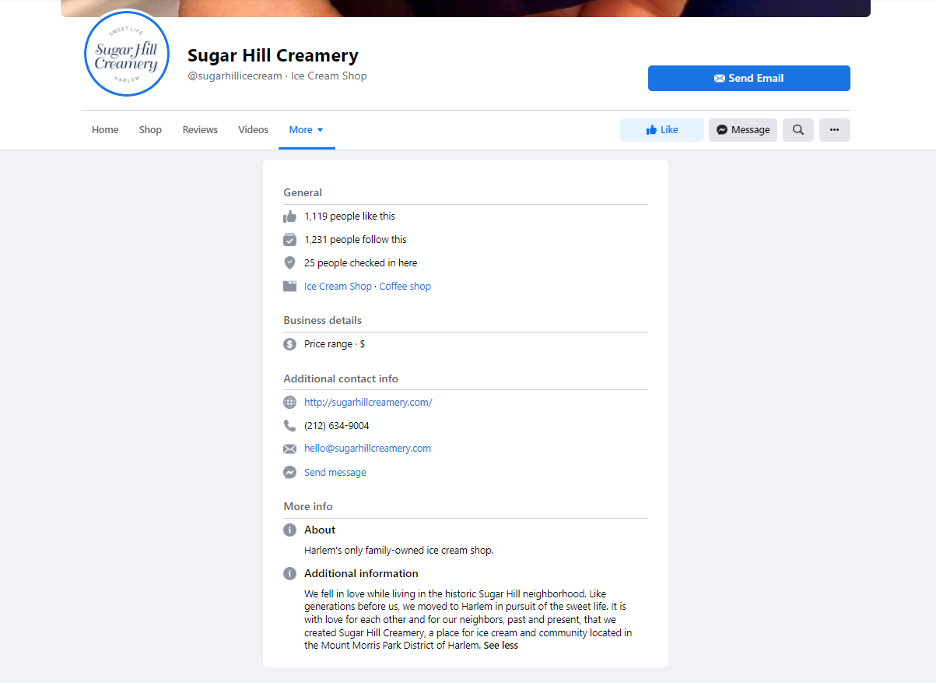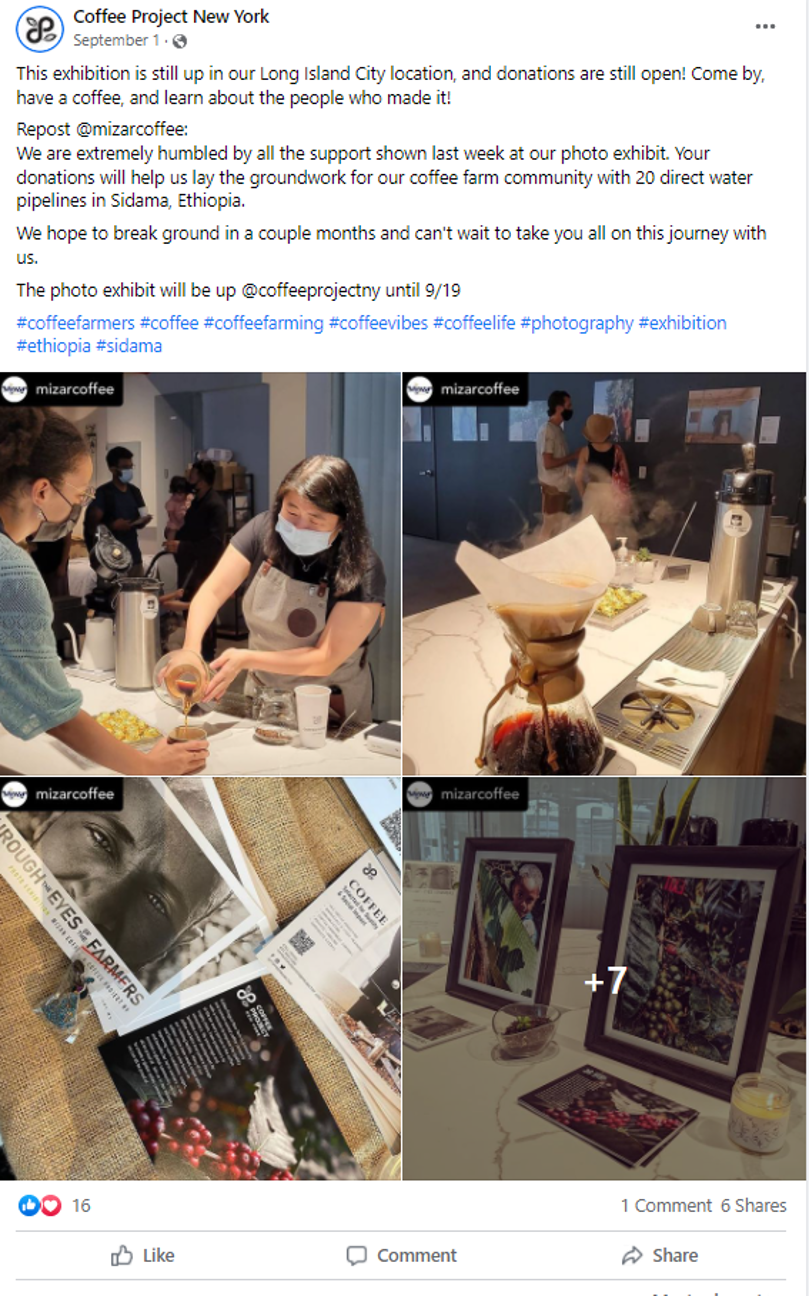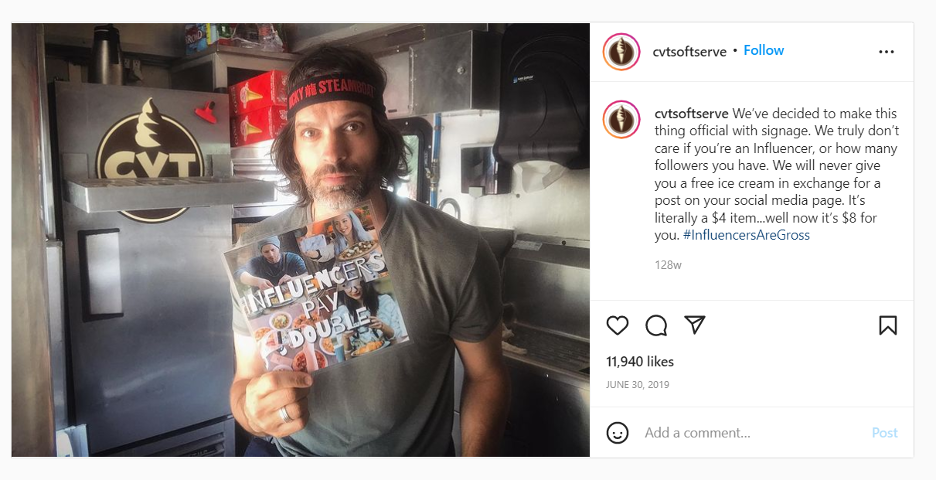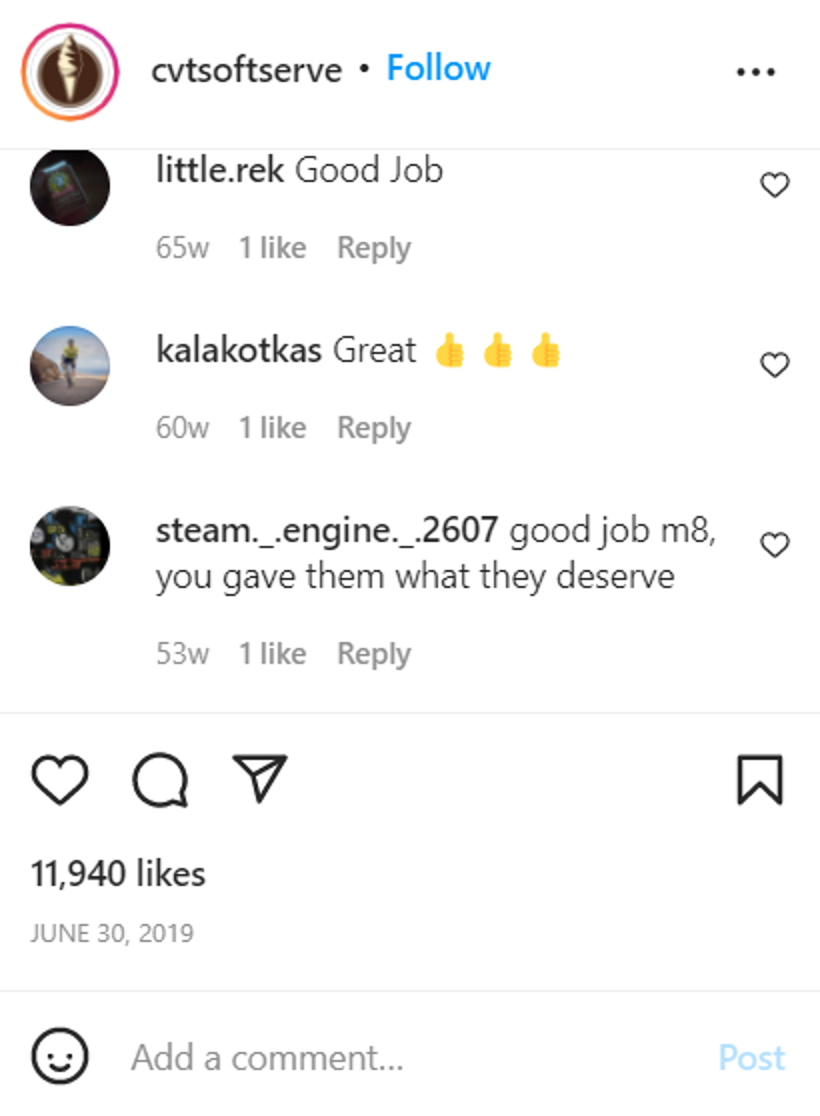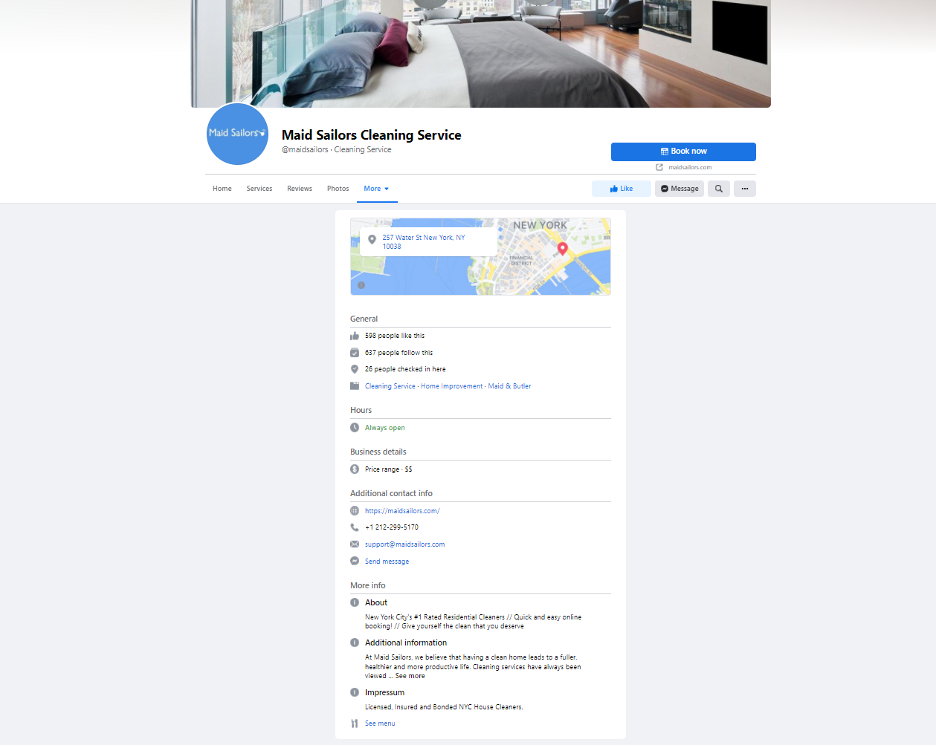Statista reports that the number of Facebook users in the U.S. (as of July 2021) has reached a whopping 302 million, and this number will keep growing exponentially in the foreseeable future.
Combine this with the fact that the overall U.S. population is around 334 million, and you can derive that virtually two in three U.S. citizens are actively using Facebook.
This social media platform and others like it can help you substantially grow your local business… if you do it right.
So how exactly can your business and specifically its local search presence benefit from being present on social media channels?
Before you decide whether you’re ready to dive into the world of social media marketing, let’s dive a bit deeper into why you should.
Why Local Businesses Should Invest Time & Money In Social Media Marketing
We know that social media is not a search ranking factor. However, there are plenty of indirect ways that social media supports SEO.
You’re probably already crazy-busy promoting your business.
Adding even more marketing tasks might seem a bit like overkill.
However, neglecting to incorporate social media into your marketing plan can cost you – not just in terms of new potential customers who don’t know you but also in terms of retaining your existing customers.
And make no mistake, your competitors are out there sniffing around and happy to have them.
By building a relationship with your clients, your chances of retaining them increase, and so does their potential lifetime value.
Now let these other compelling arguments convince you even more.
“Hey, Does Anyone Know A Good…?”
Folks on social are constantly asking their friends for recommendations for almost everything, ranging from local restaurants to car repairing services.
Social media platforms (as the marketing machines that they are) can help you be a part of these conversations.
Facebook Recommendations
For example, Facebook allows users to tag their favorite brands when they want to promote them.
Besides, when uploading a photo of yourself in a shop, hotel, amusement park, car dealership, etc., you can tag the exact location where the photo has been taken.
Here’s a quick example of Facebook recommendations in action:
-
 Screenshot taken by author, January 2022
Screenshot taken by author, January 2022
See the name of the brand in the photo caption?
This is exactly the reason why it is so important to have a Facebook Business page and update it with fresh company information regularly.
It also won’t hurt to switch on the customer testimonials feature and consistently keep in touch with followers.
Is there a single right way to fill in the company info on Facebook?
Not really, but following these recommendations could help you get started.
- Contact information (phone number, address, email address).
- Open hours.
- Website.
- Price range (important if you own a brick-and-mortar store, a restaurant, a cafe, etc.).
Facebook also recommends adding a little story of your brand – it helps form a deeper connection with customers.
How much information should you add?
Not too much; it shouldn’t be an essay. In fact, take a look at Sugar Hill Creamery, an ice cream parlor in Harlem:
-
 Screenshot taken by author, January 2022
Screenshot taken by author, January 2022
As you can see, there’s just enough information to introduce the brand and not overwhelm page visitors.
“Worst Service Ever!”
Even if you aren’t active on social media, people will talk about your business.
Customers share their feedback, good and bad, and you need to be aware of it.
- If it’s good, great! You can capitalize on that satisfied customer by leveraging their praise to get more clients or have your happy ones come back for more.
- If it’s bad, great! You can control the conversation by showing your excellent customer service skills. Turn the grumpy complainer into a blazing fan by really listening to their issue and solving it.
It usually isn’t about making a mistake – mistakes are inevitable for any business.
Really, it’s about how you correct it.
And a bonus? You learn more about what your customers really think and improve your business accordingly.
Know what happens when you aren’t there?
Complaints go viral, and your competitor offers to help out your customer – because they were listening.
Cut Your Ad Costs By Switching To Local Advertising
Social media platforms were not built for their users but for advertisers.
Location is one of the many specific demographic aspects you can target your ads on.
If you laser target your ads on the people who are based in your area, their interests, and some other demographic details, you will achieve the highest customer potential with the lowest costs.
Furthermore, by tweaking the targeting and the content of your ads, you learn more about ideal leads than any survey can tell you for a fraction of the cost!
And what if you don’t use these ads features? You keep firing aimlessly while your competition targets the golden nuggets.
Remarketing is another option to consider.
Let’s say a person visited your website but didn’t purchase anything.
Don’t fret just yet – by adding a Facebook Pixel (a feature in Facebook Ads) you can retarget such visitors with branded ads based on the product/service pages they’ve checked on your website.
Let The Fans Speak For You
Social media marketing lends itself perfectly to building a passionate community around your brand.
There’s no better way to encourage people to promote you than to help them to connect with like-minded people.
This is more than just owning the conversations around your products or services.
You’re also creating long-term relationships with and between customers.
Happy customers will take care of word-of-mouth marketing for you – and even part of your customer service.
Also, they will come back to you for more business. Again and again.
Some Ideas To Illustrate Community Building
Suppose you own a shop in craft supplies and want to become more visible to potential buyers.
You could showcase finished projects from your customers on Pinterest and Facebook and invite people to ask questions and tips from the makers.
This will get the ball rolling in people sharing their crafty accomplishments, struggles, and dreams all around your products!
Another great example is building a community around detoxing and weight loss for a local juice bar.
People can inspire and support each other in their health goals, while you can share the latest juice recipes and congratulate everyone on their progress.
You might organize meetups in your bar, before or after workouts. All done quite easily with the functionality social media provides you.
It’s also an awesome idea to unite people around an important cause.
Take a look at Coffee Project New York. It organized an exhibition encouraging donations which will then be sent to help build direct water pipelines in Ethiopia:
-
 Screenshot taken by author, January 2022
Screenshot taken by author, January 2022
So, if you don’t have a community, you are definitely missing out on establishing yourself as a strong brand with fairly low-cost effort.
A community is an asset that will pay for your investment in it many times over.
Easy Promotion Of New Products & Services
While spreading the news about new products and services through traditional local channels still has its merits, getting the word out through social media can give your campaign a huge boost.
Through social advertising, your community, and your own page, you have several options to “show what you’ve got.” And you can do this with images, text, and video.
It’s amazing when you can actually show your product in action from all angles!
Moreover, you can let your fans spread the news for you. If you have shareable content, they will pass it on.
If you have followers that are raving about your new thing, let their positive reviews shine!
The more their love for you gets the spotlight, the more attractive you will be for others.
Not using social media marketing for your new products? Then you’re giving your customers a very limited experience in getting a taste of what’s to come.
Free Mass Publicity
Throughout this article, you might have been rolling your eyes, thinking: “Does this mean I have to spend all my time reacting to everyone on social?”
I hear you. And no, you don’t.
Though you should pay attention to what your customers tell you about their experience, you don’t have to bend over backward for every voice out there.
Some social influencers have become so accustomed to companies quivering in their boots for any negative tweet or post. They assume they are all-powerful.
However, if you remain authentic, open in your communication, and use a bit of clever banter, you will often find yourself on the winning side of things.
People are getting quite fed up with spoiled insta celebs and will gather behind you.
And if you get lucky (or is it luck if you play it smart?) – you can end up being featured in the mass media.
CVT Soft Serve vs. Influencers
A great example of this is a “beef” between CVT Soft Serve ice cream cafe and influencers trying to encourage the brand to give them free stuff in exchange for promotions.
Basically, Joe Nicchi, the owner of this business, got so tired of self-proclaimed celebs asking him for free ice cream that he had to introduce a so-called ‘special offer’:
-
 Screenshot taken by author, January 2022
Screenshot taken by author, January 2022
Joe decided to charge influencers twice to punish them for their blatant behavior.
And you can’t say his followers did not support him:
-
 Screenshot taken by author, January 2022
Screenshot taken by author, January 2022
It’s an awesome example of how people can rally to a brand’s defense, especially considering that CVT’s owner has the right to be mad in this situation.
That said, making such statements is not for the faint of heart; there is still a big chance some people will bash you for using negative situations to your benefit.
But it’s also proof that you can use bad publicity to your benefit.
Check out this guide on how to use influencers as part of your social strategy.
Which Social Media Platforms Are Best For Your Business?
Face it, you can’t do everything at once.
Well, some companies can (thanks to amazing tools and teams).
To start, however, you should focus on one or two channels first.
Need help selecting the right social media platforms for you?
Here are some tips to decide which networks to focus on.
Type Of Content
This can vary, from images and videos to written content.
Let’s imagine you’re providing plumber or dental services, in which case it’s hard to post a few photos per day (compared to restaurants and shops that prefer to focus on visual content).
This means that Instagram won’t work for each and every local business, as opposed to Facebook.
I believe that a local business should have a company page on Facebook (see image below) where a potential customer can find all necessary info (i.e., working hours, location, site, and services you provide).
-
 Screenshot taken by author, January 2022
Screenshot taken by author, January 2022
Where & When Is Your Audience Most Active?
Having a page on a channel doesn’t mean that you need to produce posts on a daily basis.
For instance, if your audience isn’t really actively engaging on Facebook, then posting a few times per month should be enough.
However, if you’ve found out that your current and potential customers are actively engaging with your competitors and industry niche pages, then it’s a green light for you, too.
Another thing that’s worth checking is Facebook groups. With the help of Facebook closed groups, you can find:
- The most urgent and viral topics.
- What sort of content resonates best with your audience.
- What influences their buying decisions.
The same goes for other social media channels. So, research other local businesses on Instagram, YouTube, Twitter, Reddit, and Pinterest.
Here you can find an overview of the most popular social media channels by the number of users.
What Is Your Budget?
Take into consideration the number of hours you can invest in this and/or the budget you have.
Nowadays, successful social media managers spend a good amount of time creating social media posts – and even more hours engaging with their audience.
Conversations and engagement are the main keys to social media success.
Likes and shares won’t help your community grow as much as comments and interactions.
This is why you need to understand whether you have enough resources to be present (e.g., cover just the social media basics, post something from time to time) or active (all the basics, posting daily, plus interacting with and quickly responding to people) on social media.
Connecting Your Offline Customers With Your Social Media Platforms
Once you’ve selected the right social media platforms, you’re going to face another painful issue: Your audience is still split between the online and offline world.
This is where all brands are struggling, more or less, with clients who are constantly consuming their products but are not a part of their social media community.
You need to connect users who are consuming your products/services offline with your online activity.
They can help you grow your presence, leave positive reviews, and connect your business to a location because they are connected to the area around it.
So, how does that work?
Here are a few ideas on how you can do it:
- Ask them to check out your business on social media by giving them a printed card with all your details.
- Make a photo corner where they can take a photo/selfie and show pictures of other clients. Remember, social media marketing is 1,000x more effective when it’s about your happy customers (not YOU), so put them in the spotlight!
- Create a giveaway.
- Give people a discount on their current purchase/bill if they join your online community.
- Invite them to a special sale that will be running exclusively for your community.
Takeaway
Being online for businesses has become very, very local.
Everyone on social media is being located, by the things that they like and the things that they do.
Social media marketing can be an effective, fairly low-cost way to create greater visibility for your local business.
So, be one of the things that a lot of locals like on their news feed, and more of them will follow.
More Resources:
Featured Image: mavo/Shutterstock

Source link




